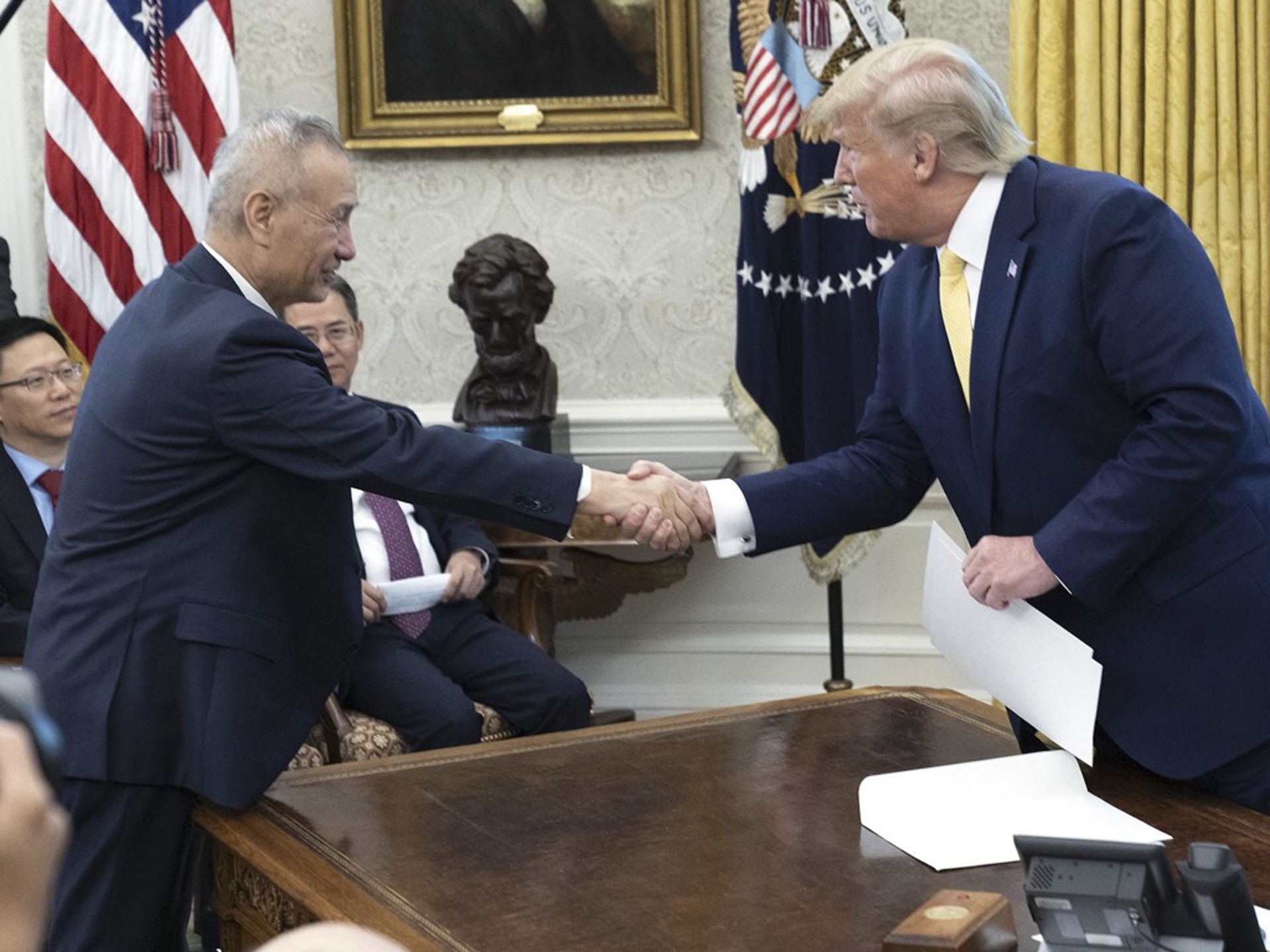US media quoted people familiar with the matter as saying that the first phase of the China-US agreement was scheduled to be held at 11:30 am US time on January 15th at the White House. Chinese State Council Vice Premier Liu He will lead a 10-member Chinese delegation to the signing ceremony, including Zhong Shan, Minister of Commerce of the People’s Republic of China, and others.
Disclosure of Chinese Representative List
On the afternoon of January 9, 2020, the Chinese Ministry of Commerce spokesman Gao Feng revealed at a regular press conference that at the invitation of the United States, Liu He, a member of the Political Bureau of the CPC Central Committee, deputy prime minister of the State Council of China, and Chinese leader of the China-US Comprehensive Economic Dialogue will From 13 to 15 of this month, he led a delegation to visit Washington and signed the first-phase economic and trade agreement with the United States.
The Wall Street Journal reported on January 9, 2020 that people familiar with the matter revealed that in the weeks since Christmas 2019, the United States and China have been arguing over the Chinese translation of the agreement documents.
China announced on January 9 that the signing ceremony of the agreement showed that Washington and Beijing have resolved most of the remaining translation issues.
A person familiar with the matter also revealed the list of members of the 10-member Chinese delegation headed by Liu He, including: Zhong Shan, Minister of Commerce of the People’s Republic of China, Yi Gang, President of the People’s Bank of China, Ning Jizhen, Deputy Director of the China Development and Reform Commission, as Liu He’s reliable assistants include Liao Min, China ’s Deputy Minister of Finance, Zheng Zeguang, China ’s Deputy Foreign Minister, Wang Zhijun, China ’s Deputy Minister of Industry and Information Technology, Han Jun, China ’s Deputy Minister of Agriculture, and Wang Shouwen, China ’s Deputy Minister of Commerce.
In addition, Cui Tiankai, Chinese ambassador to the United States, will also attend the signing ceremony of the agreement. About 200 people are expected to attend the signing ceremony, including representatives from major US trade organizations.
The start of the second phase of negotiations has not been determined
According to the consensus announced by China and the United States on December 13, 2019, Trump agreed to suspend the plan to impose new tariffs on Chinese imports and reduce some existing tariffs, while the Chinese government agreed to increase purchases of US agricultural products.
The report said that although the first phase of the China-US agreement did not cover some content, the significance was still significant. These areas include the Chinese government’s subsidies to its favored industries and companies (especially state-owned enterprises), as well as the many methods the United States claims the Chinese government uses to obtain technology know-how from Chinese companies.
On December 31, 2019, U.S. President Donald Trump posted on Twitter that “I will sign our very large and complete first-phase trade agreement with China on January 15. It will be held at the White House, and high-level representatives from China will be present. I will also travel to Beijing to start the second stage (agreement) negotiations! “
As of now, Beijing has not confirmed its plan to start the second phase of negotiations between China and the United States. Instead, Chinese officials have said that any future negotiations will depend on the implementation of the first phase of the agreement.
Gao Feng also said at a regular press conference on January 9 that the Chinese and American teams are in close communication on the specific arrangements for signing the first phase of the agreement.
The report said that Feng did not provide details on China’s commitment to increase imports from the United States. Instead, he sought to dispel concerns that China’s increased imports from the United States would divert Chinese purchases from other trading partners.
Gao Feng said that China will “improve tariff policies on wheat, corn and other agricultural products in accordance with WTO rules.”












